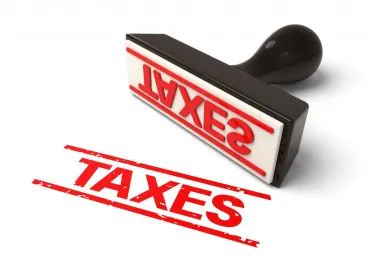We have written several times about penalty defenses, including substantial authority, issues of first impression and tax reporting disclosures. Additionally, we previously covered the 2016 case of Graev v. Commissioner, where a divided US Tax Court (Tax Court) held that supervisory approval was not necessary before determining a penalty in a deficiency proceeding because the statutory language of Internal Revenue Code (Code) Section 6751(b)(1) couched such approval in terms of a proposed penalty assessment. For those not well-versed in procedural tax lingo, an “assessment” is merely the formal recording of a tax liability in the records of the Internal Revenue Service (IRS). In cases subject to the deficiency procedures—i.e., where taxpayers have a right to contest the IRS’s position in the Tax Court—no assessment can be made until after the Tax Court’s decision is final.
Shortly after the Tax Court decided Graev in 2016, the Second Circuit in a separate case, Chai v. Commissioner, 851 F.3d 190 (2d Cir. 2017), reached the opposite conclusion. It held that the approval requirement of Code Section 6751(b)(1) is an element of a penalty claim and that the IRS must demonstrate that it has met that requirement. Because Graev was also appealable to the Second Circuit, the Tax Court vacated its decision in Graev.
Yesterday, after considering the Second Circuit’s opinion in Chai “and in the interest of repose and uniformity on an issue that touches many cases before us,” a majority of the Tax Court held that the IRS must demonstrate compliance with Code Section 6751(b) as part of its burden of production. We will not go into detail on the majority’s analysis or the views of the concurring and dissenting opinions, but they do provide a refresher and primer on various tax procedural points of which all tax practitioners should be aware.
Judge Holmes, who concurred in the result only, also issued orders yesterday in twelves cases applying the Tax Court’s holding in Graev. In those orders, Judge Holmes denied the IRS’s motions to reopen the record to demonstrate compliance with Code Section 6751(b). One of Judge Holmes’ orders can be found here.
Judge Buch, who wrote a dissent in Graev, issued several orders December 21 outlining his response to Graev. In those Orders, Judge Buch requested additional filings by the IRS regarding the effect of Code Section 67519b) and directing that any evidence of Code Section 6751(b) supervisory approval that is in the record in those cases.
Practice Point: Taxpayers with cases pending before the Tax Court involving penalties should carefully review Graev and Judge Holmes’ Orders to determine the potential impact on their respective cases. In cases for which a trial has already been held and briefing has occurred, there may be arguments about prejudice that could foreclose the IRS from being able to demonstrate compliance with Code Section 6751(b).
More broadly, in our recent experience, taxpayers have been more willing to discount defenses to penalties that involve challenges to IRS procedures—that is, how a penalty is asserted instead of why it is asserted. This is because these procedural defenses may be difficult to prove, and because the IRS is frequently permitted significant leeway for minor procedural errors. Graev and Chai are both key reminders that all procedural penalty defenses should be evaluated in every case. Under Code Section 7491(c), the IRS has the burden of production in any court proceeding regarding penalties and, as Graev demonstrates, the IRS’s compliance with procedural requirements is an essential part of this burden.



 />i
/>i

